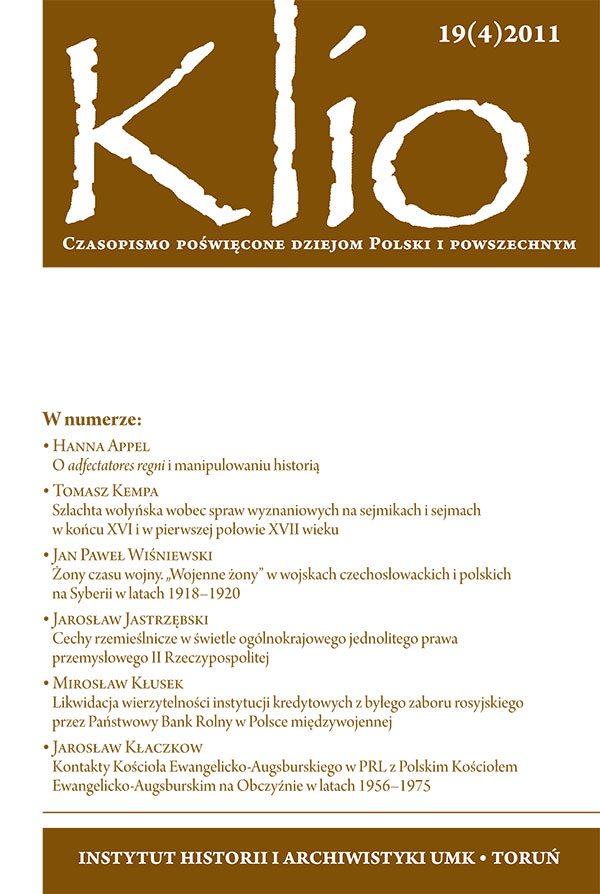Żony czasu wojny. „Wojenne żony” w wojskach czechosłowackich i polskich na Syberii w latach 1918–1920
DOI :
https://doi.org/10.12775/KLIO.2011.057Résumé
„Wartime wives” in Czechoslovakian and Polish troopsin Siberia between 1918 and 1920
(Summary)
The civil war in Russia lasting from 1917 to 1922 was characterized by unprecedented cruelty in those days. Both parties involved in the conflict – the Bolsheviks and the “Whites” – have engaged in practices in a manner substantially deviated from the standards of war. The standard of this war were executions and civilian pacification carried out by the Red Army, as well as the “Whites”. Terror policies were heightened by various types of contributions and requisitions. They caused famine and mass migration of civilians. This situation was not only typical of the European part of Russia but also in the Ural and Siberia. Along with the many features both military areas had in common, they differed in military operations and the abundance of foreign troops being involved, especially in the East, that is to say Siberia and the Ural, where there were many more. The concurrence of different reasons – the uncertain financial situation, frequently hunger, the threat of reprisal for earlier actions, no home or sometimes love – led to the fact that among the forces fighting in Russia, Russian women sought refuge from hunger, disease and death. They often accepted being humiliated while deciding to live together with the soldiers. “War wives” – as they called such women – often shared the hardships of their keepers – service soldiers. The Czech-Slovak and Polish soldiers – for different reasons – were the most popular.
Téléchargements
Publiée
Comment citer
Numéro
Rubrique
Stats
Number of views and downloads: 1039
Number of citations: 0



